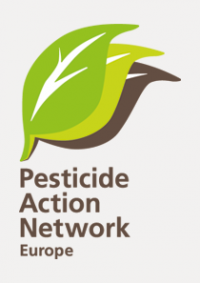Other
Approved PFAS active substances - PAN Europe
See here: Annex - Approved PFAS active substances
A PAN Europe contribution to the European Commission’s public consultation on labelling requirements for plant protection products
The Pesticide Action Network Europe (PAN Europe) welcomes the European Commission's draft Regulation aimed at updating labelling obligations for plant protection products. This update is essential to ensure consistency in plant protection product labelling across Member States and enhancing risk communication for end users. While PAN Europe considers the European Commission’s draft Regulation to be generally satisfactory, we have identified several areas of concern that weaken the quality of risk communication.
REDUCING THE ADMINISTRATIVE BURDEN FOR FARMERS: NEXT STEPS
At the European Council of 1 February, the President of the European Commission committed to launch a thorough analysis of the administrative burden weighing on farmers’ shoulders. This assessment will focus on farmers’ concerns regarding the administrative burden stemming from the EU regulatory framework as well as from national rules.
Commission Response to Council Decision (EU) 2022/2572 of 19 December 2022
Council Decision (EU) 2022/2572 of 19 December 20221 requested the Commission to submit to the Council a study complementing the impact assessment of the proposal for a regulation of the European Parliament and of the Council on the sustainable use of plant protection products and amending Regulation (EU) 2021/2115, and to propose follow-up actions, if appropriate, in view of the outcomes of the study.
Science-based regulation of endocrine disrupting chemicals in Europe: which approach?
Endocrine disruptors are defined by WHO as “exogenous compounds or mixtures that alter function(s) of the endocrine system and consequently cause adverse effects in an intact organism, or its progeny, or (sub) populations”.1 European Union (EU) laws on pesticides (plant protection products regulation [PPPR]) and biocide products regulation (BPR), enacted in 2009 and 2012, respectively, place restrictions on the use of active substances with severe forms of toxicity, including carcinogenicity, mutagenicity, reproductive toxicity, and endocrine disruption.
Let’s stop the manipulation of science
Around a hundred scientists ask Europe and the international community to act against endocrine disrupting chemicals. They condemn the use of strategies for manufacturing doubt employed by industries in the climate change battle.
